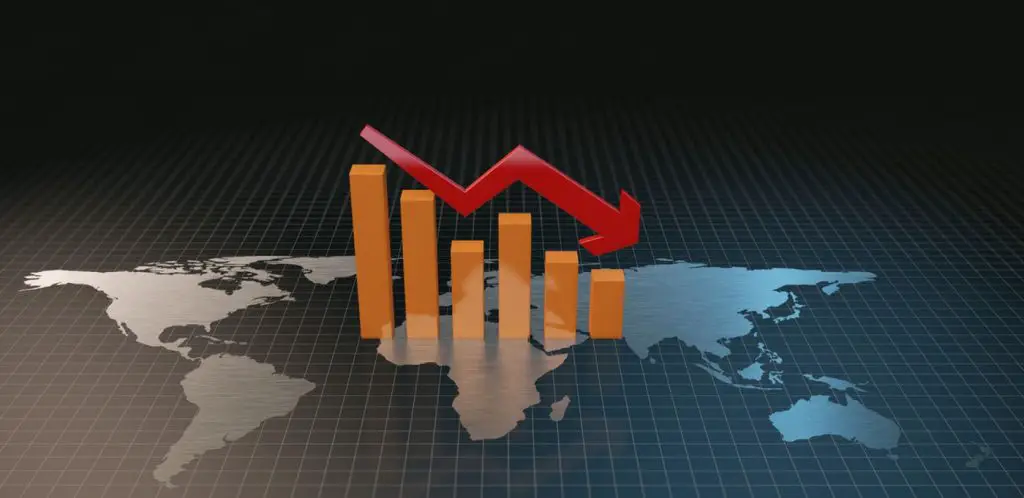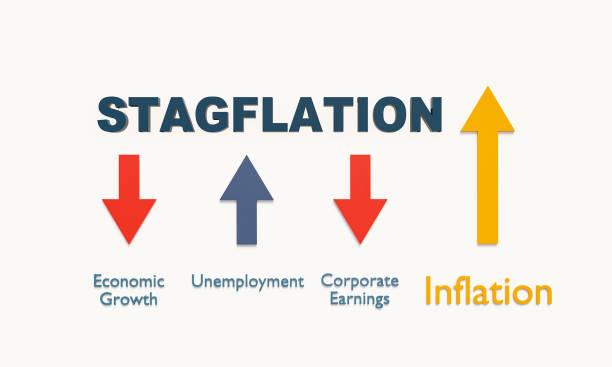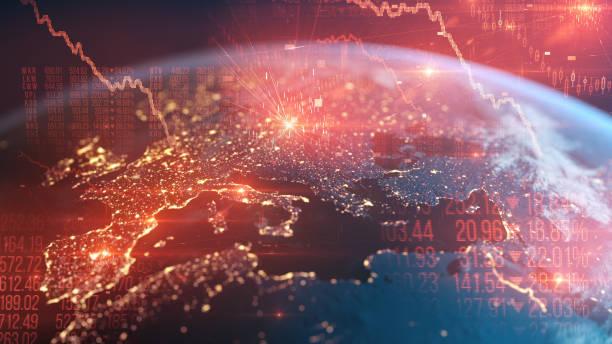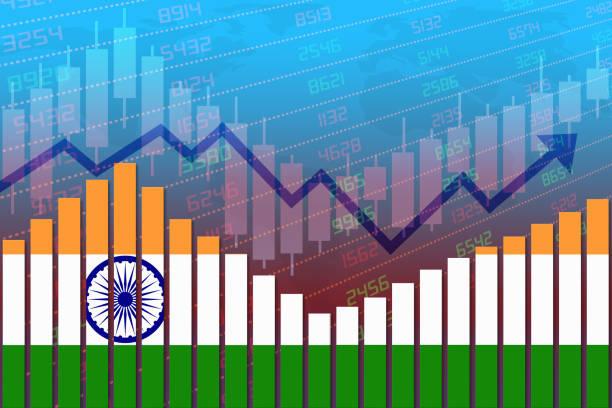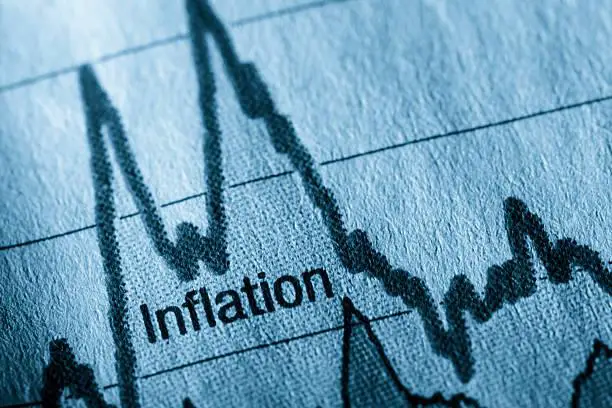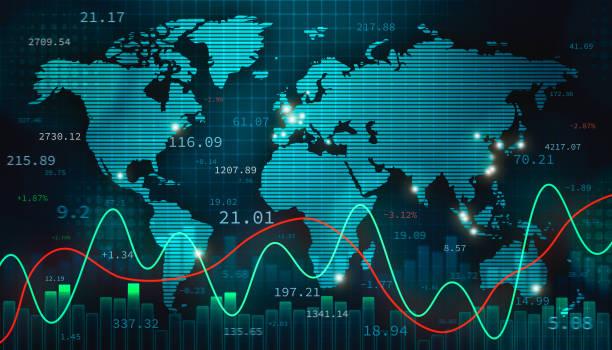- Abu Dhabi radiates optimism as over 300 startups join AIM Congress 2024
- TLcom Capital Raises $154 million in Funding to Boost Its African Growth
- Africa’s $824Bn debt, resource-backed opaque loans slowing growth — AfDB
- LB Investment brings $1.2 trillion portfolio display to AIM Congress spotlight
- AmCham Summit kicks off, setting course for robust future of US-East Africa trade ties
- Why the UN is raising the red flag on the UK-Rwanda asylum treaty
- Portugal’s Galp Energia projects 10 billion barrels in Namibia’s new oil find
- Wärtsilä Energy offers tips on how Africa can navigate energy transition and grid reliability
Browsing: Global economy
The high-interest rates have made the United States dollar more appealing to investors who are piling into the greenback. The value of other currencies has tumbled: the pound, yuan, euro, and the yen. This depreciation in other currencies makes imports for these countries more expensive in United States dollars. The case for a recession caused by a strong dollar is grimmer in Africa where just about every country on the continent is overextended in terms of United States dollar-denominated borrowings.
Repaying loans in hard currency will be more expensive, especially where their currencies are rapidly depreciating.
The strong US dollar according to CNN has a destabilizing effect on Wall Street.
Companies listed on that bourse conduct business internationally, and a strong dollar will negatively impact their earnings. The second marker of the global economic recession is that US economy is slowing down or stalling. The world’s largest economy is driven …
Other reasons that can best explain the origins of stagflation include falling productivity when an economy experience falling productivity. This could be because workers becoming less efficient. The consequence of this will be falling productivity and rising costs. Structural unemployment is another cause in cases where there is a decline in traditional industries.
This creates a tendency for unemployment to rise while productivity falls. Zimbabwe, during its lost decade from 2000 to 2010, experienced this kind of stagflation.
More generally and more contextually, stagflation comes from supply shocks. These result from supply chain disruptions. Where demand for goods and services increases or is unchanged, the result is rising prices and lower productivity.
Stagflation is not desirable in an economy because citizens of a country are generally happy when prices are low and the economy is booming.…
Due to globalization, countries worldwide are increasingly interdependent. This is why a conflict between two countries in Europe will cause ripple effects that the rest of the world feels. On this basis, the World Bank projects that economic growth in 2022 will slump. Not slow down but slump. The choice of words is intentional.
Malpass now believes that the world is in for several years of above-average inflation and below-average growth. This projection will most likely lead to destabilizing consequences for low- and middle-income economies. These low- and middle-income countries are largely on the African continent. Stagflation which the world last saw in the 1970s, will have a devastating effect on countries in Africa. Most countries in the continent do not have the resources like Germany to muster multibillion Euro or multi-billion United States dollar packages to subsidize the economic plight of their citizens.
World Bank forecasts a sharp downgrade …
According to the EIU graphic, much of the external debt stock of African countries consists of public medium- and long-term borrowings. This form of borrowing has been on the rise since 2000.
Private medium- and long-term debt stock in Africa has also been on the increase but not at the same scale and magnitude as the public debt. In short, governments, through their finance ministries, have been on a borrowing binge since 2000, whereas the private sector has marginally increased its borrowings in United States-denominated debt.
The increased levels of borrowing in hard currency badly expose governments to movements in interest rates and exchange rates. South Africa has the most external debt exposure of any country in Africa, followed by Egypt and Nigeria. With these facts in mind, it is no surprise to how much the Rand, the South African currency unit, has depreciated against the dollar.…
In terms of the economic outlook for India, opinions are divided given the headwinds facing the global economy presently, like the cost-push inflation from increases in food prices and soaring energy costs brought on by the Russia-Ukraine conflict. Deloitte, the global consulting and accounting firm, is optimistic about the economic growth prospects of India. It is projected that the Asian country will remain the fastest growing economy in the world, with growth projected to come in at between 7.1% to 7.6% in the years 2022 to 2023 and 6% to 6.7% in the years 2023 to 2024.
How has India managed to bullet-proof its economy to the extent that it has managed to register economic growth within a context of slowing global economic growth? According to Deloitte, India is primarily a domestic demand-driven economy, with consumption and investments contributing to 70% of the economic activity.
According to the Reserve Bank …
McKinsey’s report notes that the wages of consumers are steadily being eroded. Wages in the largest economies reportedly flatlined; in other words, no significant change in their levels was recorded. Prior to the pandemic, the same wages were said to have increased, giving workers the upper hand in negotiations. The pandemic, however, drastically altered that state of affairs. Wages in developed markets post the pandemic are also related, but the advent of inflation has checked that growth and, in some instances, set the trend backwards.
In the United Kingdom, there have been reports of wages being lower year on year.
The culmination of these factors is that the outlook for global economic growth will be lower this year than last. McKinsey expects central banks to increase interest rates more assertively to deal with inflationary pressure. The risk of recession is becoming more and more prevalent.…
If it so happens that the said stimulus package is financed by increasing the money supply. It may have unintended and unpleasant consequences.
Economists have a phrase that means the same as “in a perfect world”. Economists will often say “ceteris paribus”. In a perfect world, government expenditure would have been all that is necessary to fix the lingering economic problems confronting the world post-COVID. However, reality would beg us to consider that government expenditures of money that they did not have to jump-start economies that were in a prolonged period of stasis would invariably lead to inflationary pressures. The United States has been grappling with the problem of inflation throughout 2021.
Its inflation figures are the highest they have been in decades. The fascinating thing about this current brand of inflation is that it is multi-faceted. Granted, it began when governments decided to spend their way out of an …
- A report by Turner & Townsend revealed that the global economy is facing intense challenges, despite expecting a robust recovery in 2022 following two tough years of the COVID-19 pandemic
- The war in Ukraine and renewed COVID-19 lockdowns in China have destabilised the supply chain further, causing widespread disruption
- Higher energy costs and climate change-induced floods, storms and fires are all combined to test the resilience of the global economy
A new report has indicated that the global economy is facing intense challenges, despite expecting a robust recovery in 2022 following two tough years of the COVID-19 pandemic.
The Global economic outlook: A disrupted recovery by Turner & Townsend revealed that despite 2022 starting on a solid base, the war in Ukraine and renewed COVID-19 lockdowns in China have destabilised the supply chain further, causing widespread disruption.
The report further noted that higher energy costs and climate change-induced floods, storms …
Africa is not very far for Asian investors who might be interested in the investment opportunities on the continent.…
Unemployment will be on an upward trend, more companies will be facing bankruptcy; supply chains will be fragile; confidence is shaken and demand weak. …





